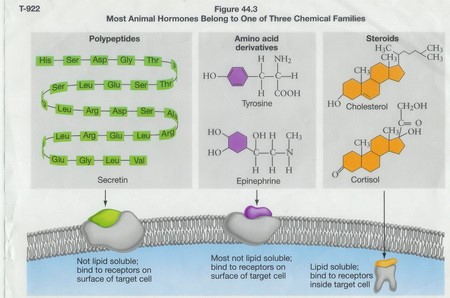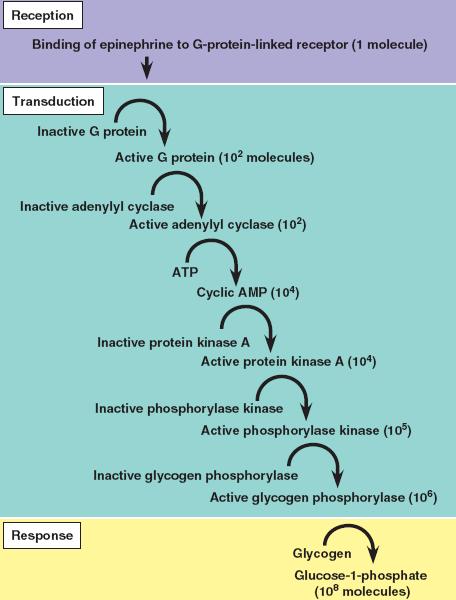Do polar hormone molecules pass directly through cell membranes and bind to intracellular receptors?
1 Answer
No, polar hormone molecules do not pass through cell membranes.
Explanation:
A hormone is a regulatory chemical that is secreted into the blood.
The blood carries a hormone to every cell in the body, but only the target cells for that hormone can respond to it.
Nonpolar hormones like steroids can pass through the plasma membrane unaided, but polar hormones like amino acid derivatives cannot pass through the membrane.

(From Stark home page)
We can consider the action of a hormone to consist of three stages: (1) reception, (2) transduction, and (3) response.
(1) Reception
Polar hormones bind to receptors on specific transmembrane proteins.

(2) Transduction
The binding induces a change in the conformation of the inside part of the protein.
This in turn activates a cascade of enzyme activity within the cell.

(3) Response
The final step results in a specific action by the cell.
Each enzyme in the cascade can act on many succeeding molecules, so the response can be amplified by a factor of

